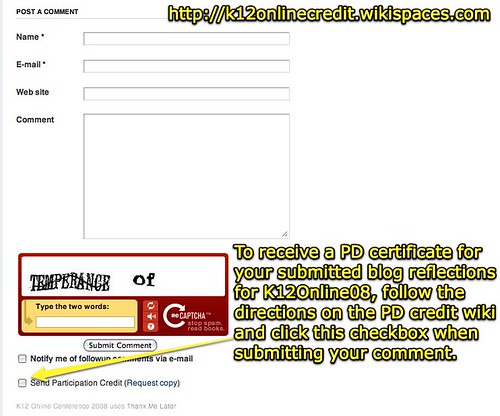Welcome to day two of the 2008 K-12 Conference! Today’s presentations include:
GETTING STARTED
The Google Gamut: Everything you need to get started.
Kern Kelley
I Like Delicious Things: An Introduction to Tagging and Folksonomies
Chris Betcher
PROVE IT
Student Creation of Digital Documentaries in History Classrooms: Research Findings
Glen Bull, Thomas Hammond, Curby Alexander
Facilitating Tech Integration: A Synthesis of the Research
Jon Becker
Presentation links on our 2008 schedule page have been updated.
A page containing web feeds from the conference is available, including updated links for our 2008 audio podcast and video podcast channels. Note all presentations are not available as videos, some are audio-only.
UPDATES:
Video and audio podcast links for day 2 have been updated as of 3:00 PM GMT today. Note that some day 1 podcast links have still not been moved over to the W&M server, but should be soon. All podcast links for day 2 presentations are originating from the W&M server.

